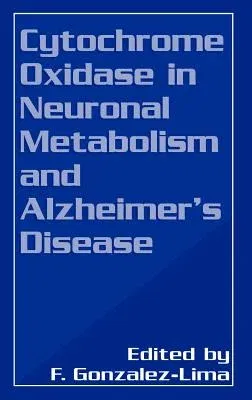This book is based on an international symposium titled "Cytochrome
oxidase in energy metabolism and Alzheimer's disease," held as a
satellite to the 27th meeting of the Society for Neuroscience, New
Orleans, 1997. The symposium was dedicated in honor of Dr. Margaret T.
T. Wong-Riley because, in our opinion, the cytochrome oxidase histo-
chemical method introduced by Dr. Wong-Riley in 1979 was the most
significant break- through to map energy metabolism in the entire brain
since the 2-deoxyglucose method introduced by Dr. Louis Sokoloff and
colleagues in 1977. Both of these metabolic map- ping techniques have
made monumental contributions to brain research by allowing an integral
view of brain activity. They have also developed into various
specialized tech- niques, including applications to the human brain. One
of these new applications, which is described in detail in this book, is
the quantitative cytochrome oxidase cytochemical method used to study
Alzheimer's disease. The objective of this book is to describe the role
of cytochrome oxidase in neuronal metabolism and Alzheimer's disease.
Whether genetic or environmental, the pathogenesis of Alzheimer's
disease involves a cascade of multiple intracellular events, eventually
re- sulting in failure of oxidative energy metabolism. Could impairment
of cytochrome oxi- dase in energy metabolism initiate the degenerative
process? Cytochrome oxidase function and dysfunction are discussed in
relationship to neuronal energy metabolism, neurodegen- eration, and
Alzheimer's disease. The book is made up of 10 chapters, divided into
three major parts.

